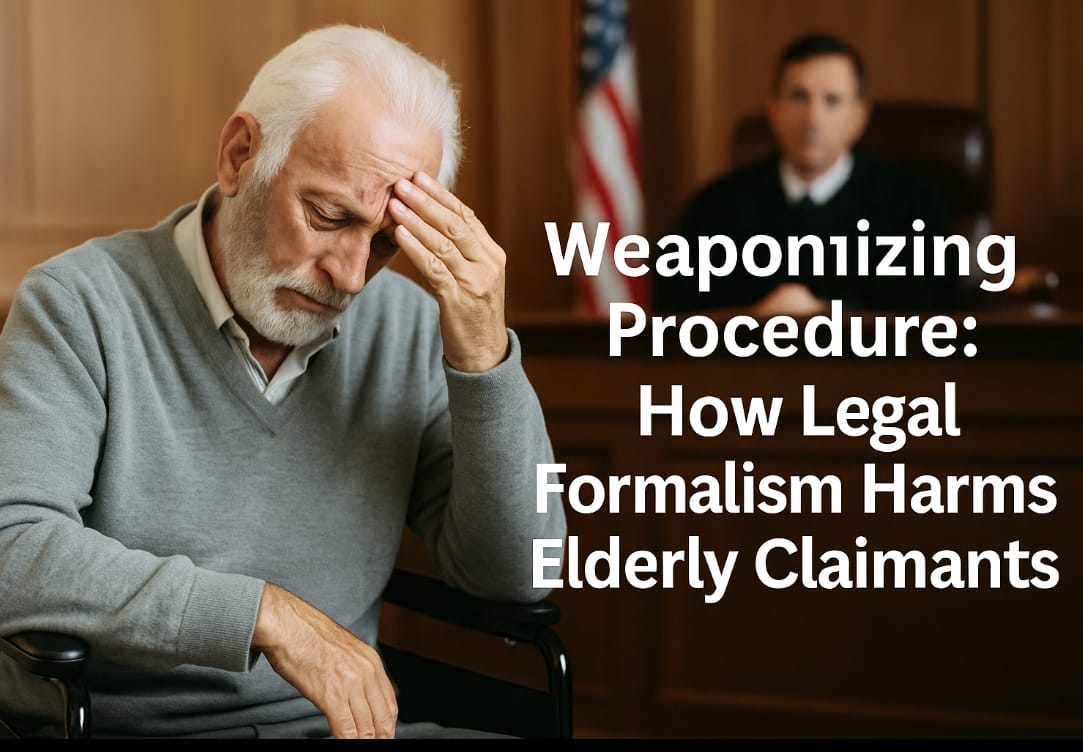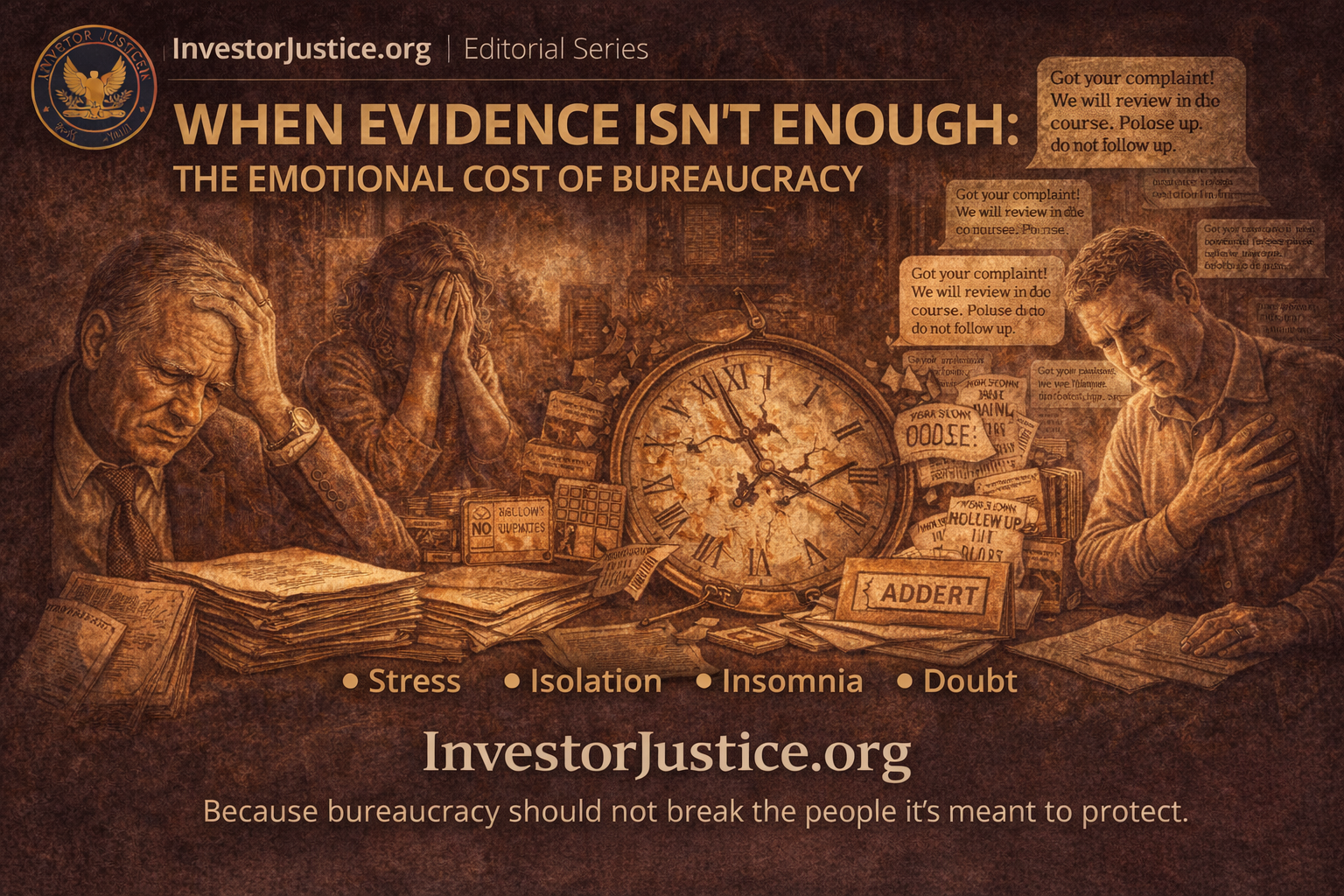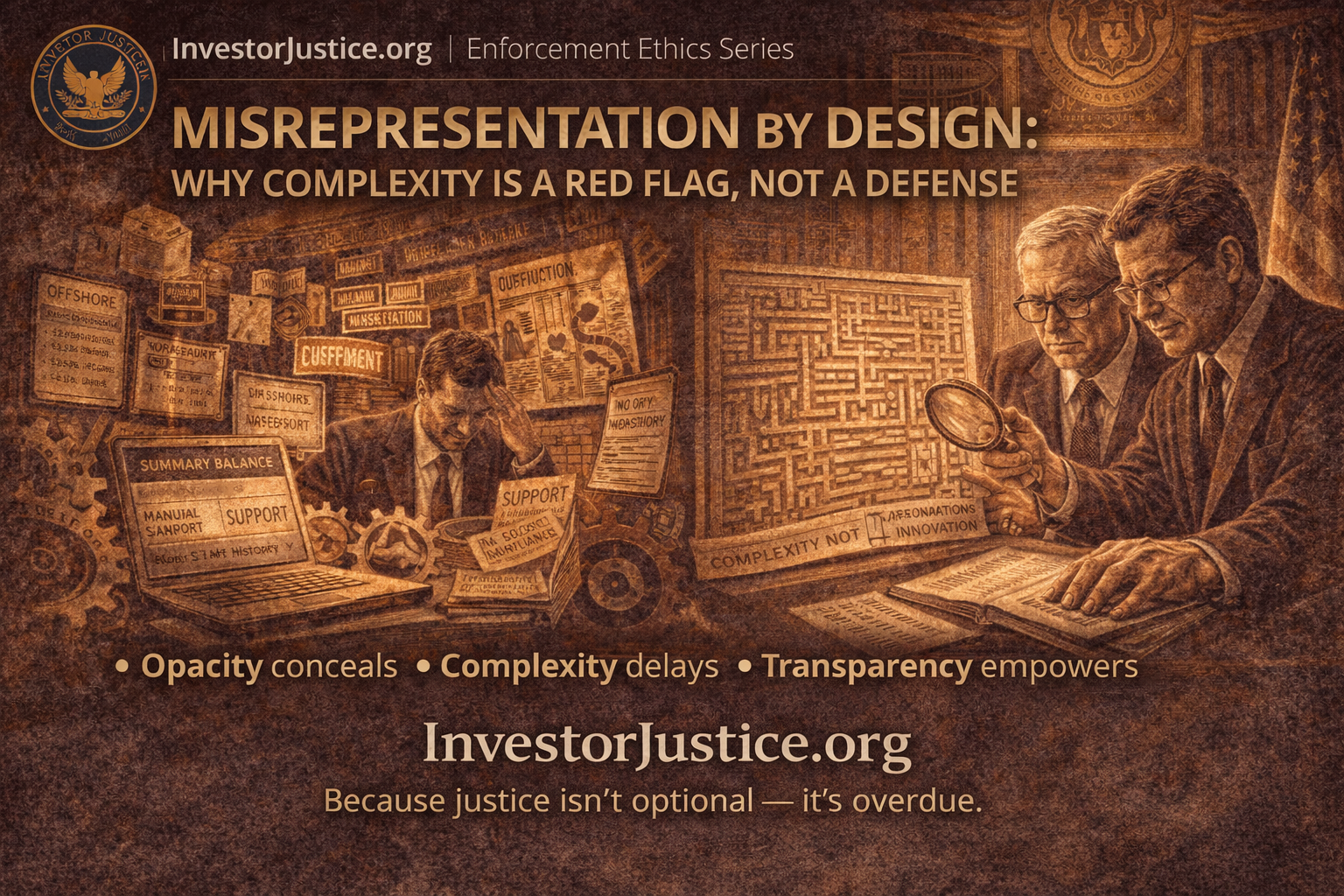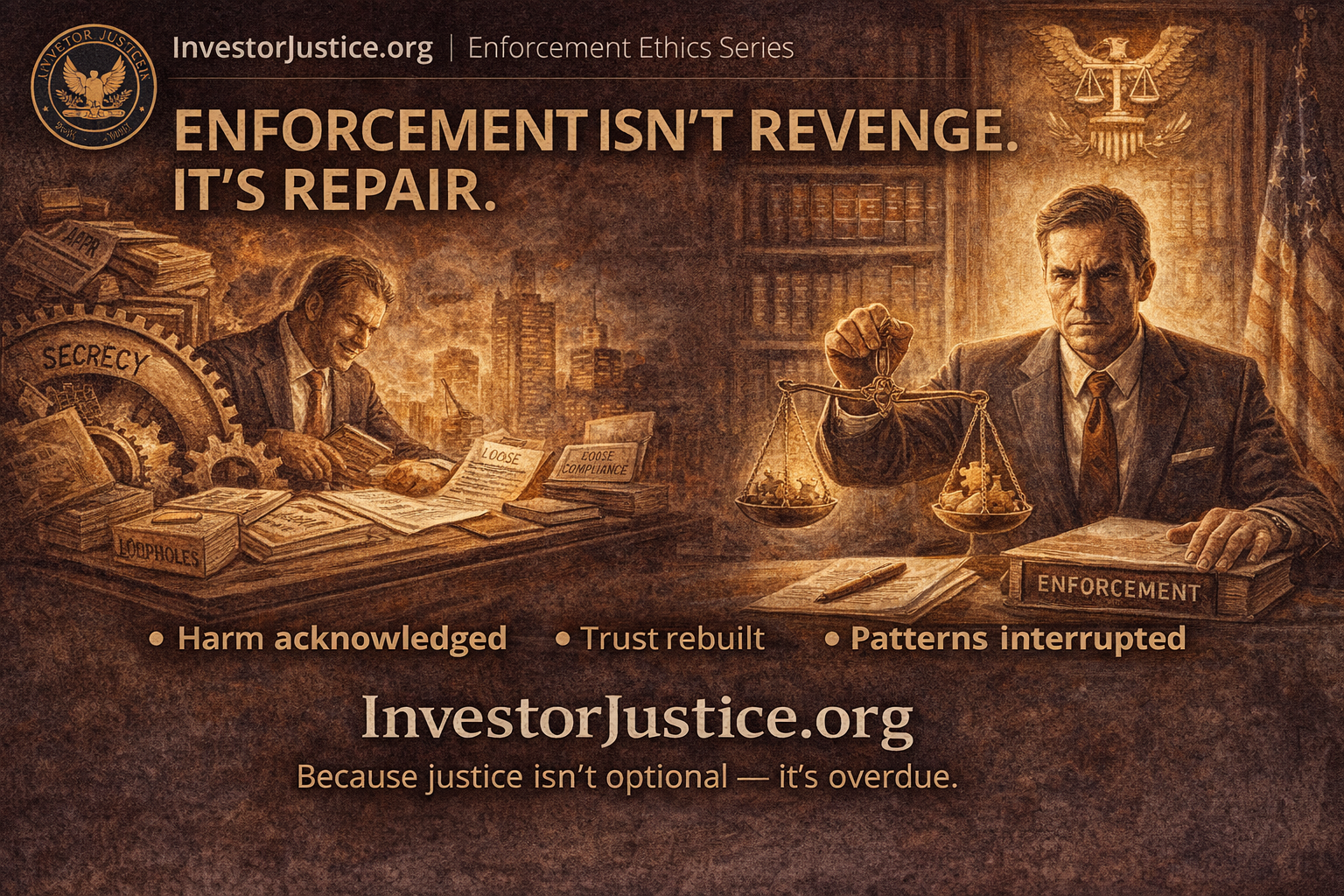Table of Contents
Respondents: Nexo AG; FINMA; U.S. SEC
Dossier: /case-2025-000001/
All posts: /tag/case-2025-000001/
Status: Open
Last updated: October 3, 2025
When legal systems prioritize form over substance, they risk betraying the very principles of justice they were designed to uphold. For elderly claimants, this isn’t just a philosophical risk — it’s a lived reality.
In investor-related litigation — especially involving cross-border misconduct — delay is not neutral. It is a tactic. By drawing out proceedings or insisting on excessive formalities (redundant power-of-attorney forms, jurisdictional maneuvering, or conciliation rituals), well-resourced adversaries weaponize procedure against vulnerable individuals.
For retirement-age investors, time is not abstract. The legal process can outlast financial viability, physical health, or even life expectancy. When a claim’s success depends not just on legal merit but on a claimant’s ability to survive the process, justice is no longer blind — it becomes complicit.
Case in Point: Nexo AG and Procedural Obstruction
In several recent matters, legal counsel for Nexo AG has demanded irregular power-of-attorney (PoA) language — not to confirm representation, but to manipulate forum selection and obstruct basic communication.
Such tactics may pass legal muster. But are they just?
When Swiss counsel refuse to recognize a standardized PoA issued under Swiss Bar Association rules — solely because the claimant refuses to sign away jurisdictional rights — we must ask:
Is the system protecting investors, or shielding abusers?
Reform Must Begin with Recognition
Swiss jurisprudence prides itself on neutrality and the rule of law. But law is only as fair as its application. Courts, funders, and legal institutions must recognize when procedural formality mutates into procedural suppression.
The solution is not to dismantle legal process — but to balance it with urgency, proportionality, and ethical review, especially in cases involving elderly or structurally disadvantaged parties.
Otherwise, justice delayed is justice denied — systematically.






